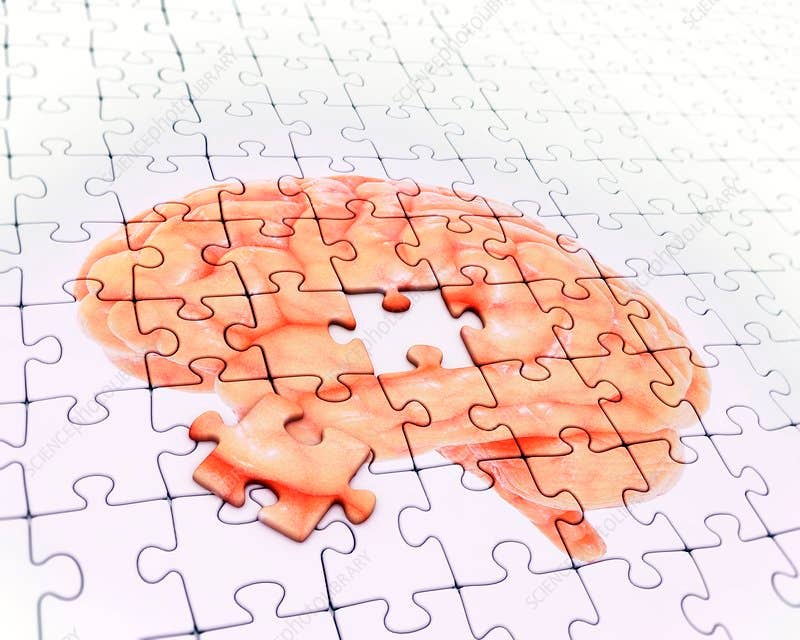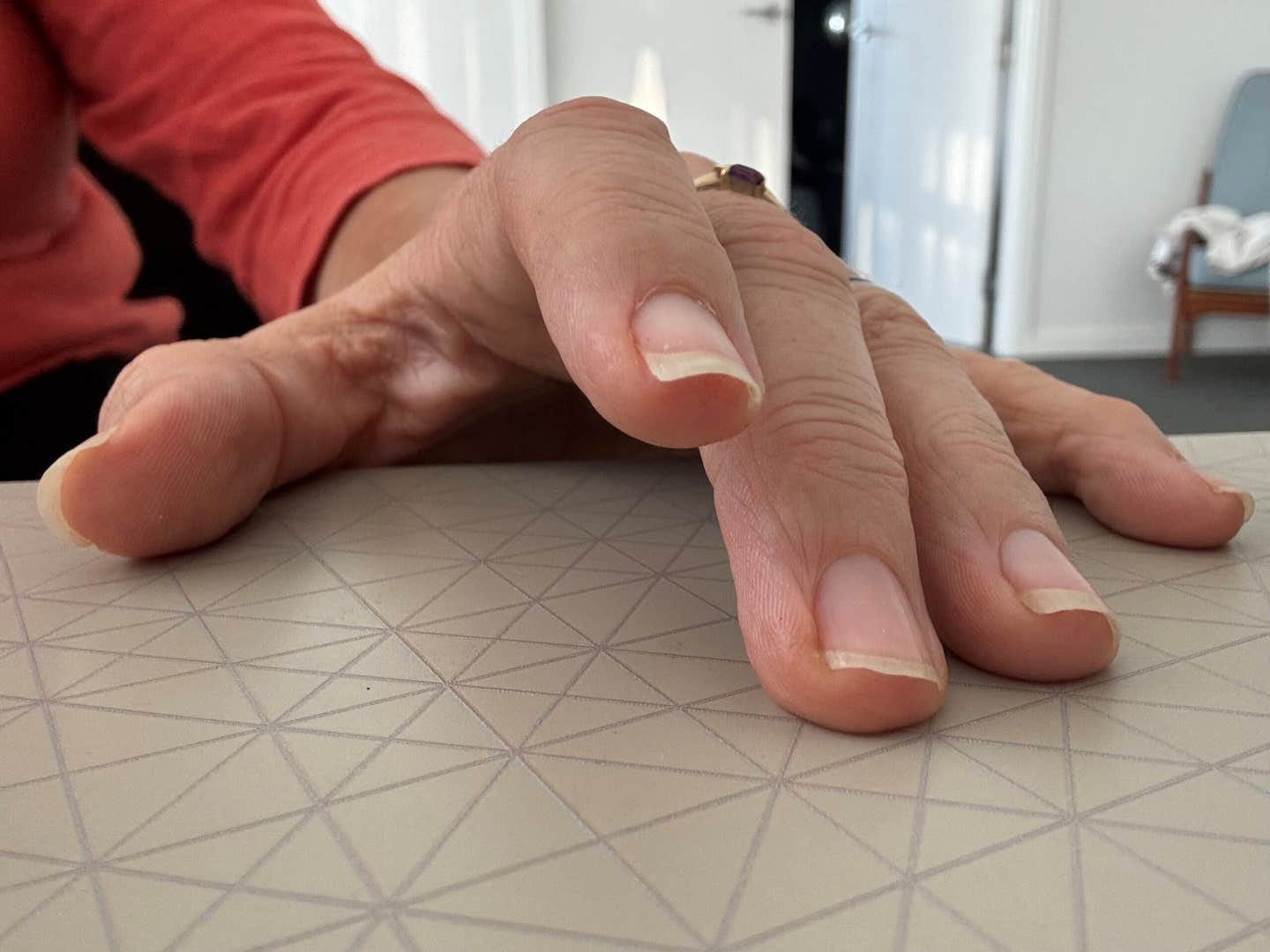Upgrade your mind: Simple daily habits that strengthen memory
Whether you’re looking for your phone or studying for an exam, the way your brain stores and recalls information makes a big difference.

Evidence-based techniques such as the memory palace, along with consistent healthy habits, can significantly boost your memory. (CREDIT: CC BY-SA 4.0)
Memory shapes everything from daily routines to long-term goals. Whether you're looking for your phone or studying for an exam, the way your brain stores and recalls information makes a big difference.
Yet for many people, memory often feels slippery—present one moment, gone the next.
1. Neuroplasticity: The Neural Roots of Memory
Science has shed light on why that happens and what you can do about it. Your brain isn’t fixed; it adapts constantly. That flexibility, known as neuroplasticity, allows you to learn new things and store memories more effectively.
According to neuroscientist Dr. Tara Swart Bieber, a neuroscientist at MIT, “memory is something that can be trained using neuroplasticity.” This training involves building and reinforcing pathways between brain cells. When you recall information or repeat a skill, those pathways become more solid.
To improve neuroplasticity, try exercises like learning a new skill, playing brain games, practicing mindfulness, and engaging in physical activity. Specifically, juggling, puzzles, and creative pursuits like art and music have been shown to stimulate neuroplasticity.
Researchers at the Queensland Brain Institute found that memory depends on reactivating the same neural circuits over and over. Repetition strengthens those circuits, making recall easier over time.
2. Associative Memory: Connecting the Dots
Connections also play a key role. Your brain often ties new information to something familiar. If you catch the scent of a perfume your mother used to wear, her memory might flood back. Even if she’s not there, the smell alone can pull her image to the front of your mind.
Related Stories
These links—between senses, experiences, and memories—help make recall faster and more powerful. They explain why certain songs, sights, or smells can trigger vivid emotions or detailed memories. Memory may seem mysterious at times, but with the right tools and understanding, it becomes something you can shape and strengthen.
To improve your associative memory, start by using vivid mental imagery—turn abstract information into memorable pictures, and make them as unusual or emotional as possible to help them stick. Connect new information to things you already know, forming strong mental links.
Group related items into chunks or patterns to reduce cognitive load, and try using techniques like the memory palace or peg systems to anchor new facts in familiar mental structures. Wrapping information in a short story or emotional context also enhances retention.
Repetition is key, especially when spaced out over time, as it strengthens those associative links. Engaging multiple senses—such as visualizing sounds, colors, or movements—can also boost recall. Finally, teaching the material or explaining it aloud forces deeper thinking and reinforces the connections in your brain.
Associative memories simplify the process of encoding and retrieving information by linking new data to familiar stimuli.
3. The Memory Palace: A Practical Tool for Recall
The memory palace technique, or the method of loci, uses visualization to boost memory. To start, imagine a familiar location, such as your childhood home or workplace. Within this space, identify distinct landmarks—like a doormat, a fruit bowl, or a painting.
Next, link each landmark to a piece of information you want to remember. For instance, to recall the first three U.S. presidents, you might picture "washing your shoes" on the doormat for Washington, an "Adams apple" in the fruit bowl for Adams, and a "Tom cat" near a painting for Jefferson.
Regularly revisiting this mental map reinforces the associations. Over time, the technique becomes a powerful tool for memorizing lists, facts, or complex concepts.
4. Overcoming Everyday Forgetfulness: Focus and Mindfulness
Forgetting where you left your keys often boils down to a lack of attention. “You remember what you pay attention to,” Dr. Swart Bieber explains.
To improve focus and mindfulness, start by minimizing distractions in your environment—turn off notifications, tidy your workspace, and set clear intentions before beginning any task.
Practicing mindfulness meditation, even for just a few minutes a day, can train your brain to stay present and resist distractions. Deep, intentional breathing helps calm your nervous system and bring your attention back when it wanders.
Breaking tasks into smaller, manageable chunks and using techniques like the Pomodoro method (25 minutes of focus followed by a short break) can make it easier to sustain attention. Staying hydrated, eating balanced meals, and getting enough sleep also play a big role in maintaining mental clarity.
Finally, regularly bringing your awareness back to the present moment—whether by focusing on your breath, your senses, or your surroundings—helps strengthen your ability to stay grounded and attentive in daily life.
5. Lifestyle Factors: Building a Brain-Healthy Environment
Beyond techniques, your lifestyle significantly impacts memory. Poor sleep, chronic stress, an unhealthy diet, and lack of exercise all impair brain function. Multitasking and constant distractions also weaken recall. Dr. Swart Bieber underscores the importance of a healthy lifestyle for memory optimization.
“Optimum sleep, a plant-based diet rich in omega-3 oils, adequate hydration, regular physical activity, and stress management form the foundation of brain health,” she advises. These lifestyle habits not only enhance memory but also improve overall cognitive function.
Enhancing Memory: A Holistic Lifestyle Approach
Improving memory often involves a combination of physical, mental, and lifestyle strategies. Beyond brain exercises, here are some evidence-based methods to enhance memory:
Maintain a Healthy Diet
- Focus on brain-boosting foods: Incorporate foods rich in antioxidants, healthy fats, and vitamins, such as berries, leafy greens, nuts, seeds, fatty fish (like salmon), and whole grains.
- Stay hydrated: Dehydration can impair cognitive function, so drink plenty of water.
- Limit sugar and processed foods: Excess sugar can negatively affect memory and overall brain health.
Get Adequate Sleep
- Sleep is essential for memory consolidation, the process by which short-term memories are converted into long-term ones.
- Aim for 7–9 hours of quality sleep per night, and establish a consistent sleep schedule.
Limit Alcohol and Avoid Smoking
- Excessive alcohol and smoking can impair brain function and memory over time.
Exercise Regularly
- Physical activity increases blood flow to the brain, supporting neurogenesis (growth of new neurons) and improving memory.
- Aerobic exercises: Activities like walking, running, and swimming are particularly beneficial.
- Strength training: Resistance exercises also contribute to brain health.
Manage Stress
- Chronic stress can damage the hippocampus, the brain region responsible for memory.
- Practice stress-reduction techniques like mindfulness meditation, yoga, deep breathing, or progressive muscle relaxation.
Stay Socially Engaged
- Interacting with others stimulates the brain and helps prevent cognitive decline.
- Join social clubs, engage in meaningful conversations, or participate in group activities.
As researchers continue to explore the intricacies of memory, the tools to optimize recall are becoming increasingly accessible. Whether you're preparing for an exam, managing daily tasks, or trying to keep your keys in the right place, these techniques and habits can empower you to navigate life with confidence and clarity.
Note: Materials provided above by The Brighter Side of News. Content may be edited for style and length.
Like these kind of feel good stories? Get The Brighter Side of News' newsletter.
Joseph Shavit
Head Science News Writer | Communicating Innovation & Discovery
Based in Los Angeles, Joseph Shavit is an accomplished science journalist, head science news writer and co-founder at The Brighter Side of News, where he translates cutting-edge discoveries into compelling stories for a broad audience. With a strong background spanning science, business, product management, media leadership, and entrepreneurship, Joseph brings a unique perspective to science communication. His expertise allows him to uncover the intersection of technological advancements and market potential, shedding light on how groundbreaking research evolves into transformative products and industries.



